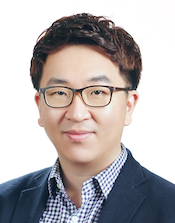Read Yongchul’s Emerging Investigator manuscript: Recent advances in software tools for adsorption science and engineering, DOI:10.1039/D2ME00036A
This will be free to read until May 30th! Read the interview with Yongchul below;
1. How do you feel about MSDE as a place to publish research on this topic?
I find articles published in MSDE to be useful and high-impact. I frequently refer articles from MSDE to members of my group. I think MSDE is a great place to publish multiscale modeling studies.
2. What aspect of your work are you most excited about at the moment and what do you find most challenging about your research?
I am excited about the possibility of multiscale modeling in the future, where the information from molecular simulation is used in device or unit operation levels to truly evaluate the performance of materials and accelerate the overall materials discovery process. The current challenge is availability of open-source software tools for modeling at the systems level. Majority of the research is done using commercial softwares and even if the software has been developed, it is not widely adopted in the community to share their code. I hope this will change in the future to truly accelerate scientific and engineering progress.
3. In your opinion, what are the most important questions to be asked/answered in this field of research?
I think the most important question right now is what can we do about carbon dioxide. There are many technologies being reported in the literature, but when will we see widespread adoption (not just a test site) soon to really make the difference? Also we should think about energy transition. If we are going to use energy from renewable sources, what should we do with current infrastructure for oil/gas? Where will we get carbon from to make consumer goods? Many people are working in these areas and I hope to see answers to these questions in the next decade.
Follow Yongchul on X (formally Twitter); @DrYGChung











